#PM-SHRI Scheme
Explore tagged Tumblr posts
Text
#PM SHRI Schools Scheme#PM SHRI Schools#PM SHRI Yojana#What is the PM-SHRI scheme#What is the PM SHRI Scheme?#PM-SHRI Scheme
0 notes
Text
Hearty Welcome and Felicitation to Prime Minister Shri Narendra Modi in Rajasthan: Col Rajyavardhan Rathore

Rajasthan, a state synonymous with valor and rich heritage, extended a grand welcome to the honorable Prime Minister Narendra Modi during his visit. The warmth of the desert state was on full display as leaders, including Colonel Rajyavardhan Rathore, honored the nation’s dynamic leader. The visit symbolized a confluence of tradition, progress, and mutual respect.
A Land Known for Bravery Welcomes a Visionary Leader
Rajasthan’s legacy of bravery and sacrifice finds resonance in PM Modi’s leadership, characterized by bold decisions and unwavering commitment to the nation’s progress. His arrival in Rajasthan was met with immense enthusiasm, with thousands gathering to greet him and show their admiration.
Colonel Rajyavardhan Rathore’s Tribute
Col Rathore, a distinguished son of Rajasthan and a champion of its development, described the visit as a moment of pride for the state. “Prime Minister Modi’s visit to Rajasthan is a celebration of our shared commitment to building a stronger, self-reliant India,” he said while extending a heartfelt welcome to the leader.
Highlights of the Grand Welcome
Traditional Ceremonies
True to its roots, Rajasthan greeted the Prime Minister with a vibrant display of traditional dance, music, and rituals, showcasing the state’s cultural richness. From the beats of the dhol to the sight of performers in traditional attire, the ambiance was electric.
A Guard of Honor
As a mark of respect, PM Modi was accorded a ceremonial guard of honor, reflecting the state’s deep-rooted military tradition and its pride in hosting the leader of the nation.
Public Enthusiasm
The streets of Jaipur and other cities were lined with citizens holding banners, chanting slogans, and waving flags. The excitement was palpable as people from all walks of life came together to celebrate the Prime Minister’s arrival.
Colonel Rajyavardhan Rathore’s Role in the Occasion
A Strong Advocate for Rajasthan’s Development
As a prominent leader from the state, Col Rathore played a key role in orchestrating the event. His efforts to bridge local aspirations with national goals were evident in the seamless organization and the inclusive spirit of the welcome.
A Voice of Gratitude
During his speech, Col Rathore expressed profound gratitude for PM Modi’s continuous support for Rajasthan’s development. “From infrastructure projects to welfare schemes, Rajasthan has witnessed transformative growth under your leadership,” he remarked.
PM Modi’s Message to Rajasthan
Addressing the gathering, PM Modi commended Rajasthan for its resilience, cultural pride, and contributions to the nation’s progress. “Rajasthan’s legacy inspires the entire nation. Together, we will ensure that this land of heroes continues to shine on the global stage,” he said.
Strengthening Rajasthan’s Development Path
Focus on Infrastructure
During his visit, PM Modi emphasized the importance of modern infrastructure in unlocking Rajasthan’s potential, unveiling several projects aimed at boosting connectivity and economic growth.
Support for Youth and Entrepreneurs
The Prime Minister also reiterated his commitment to empowering Rajasthan’s youth and entrepreneurs through skill development programs and business-friendly policies.
A Symbol of Unity and Progress
PM Modi’s visit to Rajasthan underscored the deep connection between the state and the central leadership. Leaders like Col Rajyavardhan Rathore continue to play a vital role in ensuring that Rajasthan’s voice is heard and its aspirations are realized.
A Historic Moment for Rajasthan
The hearty welcome and felicitation of Prime Minister Narendra Modi in Rajasthan reflected the state’s enduring spirit of hospitality and patriotism. With leaders like Col Rajyavardhan Rathore championing its cause, Rajasthan stands poised for a future of progress and prosperity under the visionary guidance of its Prime Minister.
2 notes
·
View notes
Text
[ad_1] Deutsche Bank and The Akshaya Patra Foundation have further strengthened their long-standing partnership to combat classroom hunger by initiating the construction of a state-of-the-art kitchen in Shivajinagar, Pune. The groundbreaking ceremony for this innovative facility marks a major milestone in their joint efforts to enhance the lives of underprivileged children through the Pradhan Mantri Poshan Shakti Nirman (PM POSHAN) scheme. The Akshaya Patra Foundation is the implementing partner of the PM POSHAN initiative and world’s largest NGO-Run school meal program. Ms Ruchi Khemka, Head CSR & Mr Kaushik Shaparia, CEO Deutsche Bank Group India; Sri Prithviraj BP, IAS; Shri Sampati Dasa, Regional President & Mr Shridhar Venkat, CEO, TAPF Expected to be operational by early 2026, the multi-level kitchen will provide over 25,000 daily hot, nutritious meals to students in government and government-aided schools across Pune. This initiative is aimed at improving school attendance, academic performance, and the overall health and well-being of marginalized children. The facility will adhere to the highest standards of hygiene and safety and is designed to serve as Akshaya Patra’s central kitchen in Pune. Beyond addressing nutrition and education, the project is poised to create employment opportunities and support local agriculture, fostering economic development within the community. The ceremony was attended by Mr. Kaushik Shaparia, CEO of Deutsche Bank Group, India, along with Shri Sampati Dasa, Regional President – Pune, The Akshaya Patra Foundation; Shri Shridhar Venkat, CEO, of The Akshaya Patra Foundation, Ms Ruchi Khemka, Head - CSR, Deutsche Bank Group, India, Praveen NR, IFS, Sri Prithviraj BP, IAS & other senior representatives from the Pune Government department & The Akshaya Patra Foundation and other dignitaries. Mr. Kaushik Shaparia, CEO of Deutsche Bank Group, India, highlighting the significance of this initiative, said, “At Deutsche Bank, we believe collaboration is vital to creating lasting social impact. This new kitchen in Pune reflects our unwavering commitment to addressing hunger and education, empowering students to realize their full potential. With our strong presence in Pune, we also look forward to engaging our employees in advancing this meaningful cause and fostering sustainable change.” Mr. Shridhar Venkat, CEO, from The Akshaya Patra Foundation, said, “Today's groundbreaking ceremony marks a significant milestone in our ongoing journey with Deutsche Bank to eradicate classroom hunger and foster educational opportunities for children across Pune. Through this state-of-the-art kitchen facility, we are set to enhance our operational capabilities significantly, thereby ensuring that over 25,000 students receive nutritious meals every school day. This initiative not only supports academic excellence but also strengthens the fabric of our communities by promoting better health and creating economic opportunities locally. We are immensely grateful to Deutsche Bank's for their support over the years. We also want to thank the Government of Maharashtra for providing us the opportunity to serve the children in the state. They have been instrumental in helping us make an impact and nurture the potential of every child we serve." Since 2014, Deutsche Bank has supported Akshaya Patra’s efforts to provide mid-day meals to students in Jaipur, Bengaluru, and Pune. Over the past decade, this partnership has facilitated the provision of over 8 crore meals to children, significantly enhancing educational opportunities for marginalized communities. In addition to the Pune kitchen, Deutsche Bank is extending its support to Akshaya Patra by funding meals for an additional 2,000 children in Gandhinagar, Ahmedabad. The Pune kitchen is set to play a critical role in scaling Akshaya Patra’s Mid-Day Meal Programme in Maharashtra, furthering its mission of eliminating hunger and ensuring access to education for all.
For more details, please log on www.db.com/india / www.akshayapatra.org. !function(f,b,e,v,n,t,s) if(f.fbq)return;n=f.fbq=function()n.callMethod? n.callMethod.apply(n,arguments):n.queue.push(arguments); if(!f._fbq)f._fbq=n;n.push=n;n.loaded=!0;n.version='2.0'; n.queue=[];t=b.createElement(e);t.async=!0; t.src=v;s=b.getElementsByTagName(e)[0]; s.parentNode.insertBefore(t,s)(window,document,'script', 'https://connect.facebook.net/en_US/fbevents.js'); fbq('init', '311356416665414'); fbq('track', 'PageView'); [ad_2] Source link
0 notes
Text
[ad_1] Deutsche Bank and The Akshaya Patra Foundation have further strengthened their long-standing partnership to combat classroom hunger by initiating the construction of a state-of-the-art kitchen in Shivajinagar, Pune. The groundbreaking ceremony for this innovative facility marks a major milestone in their joint efforts to enhance the lives of underprivileged children through the Pradhan Mantri Poshan Shakti Nirman (PM POSHAN) scheme. The Akshaya Patra Foundation is the implementing partner of the PM POSHAN initiative and world’s largest NGO-Run school meal program. Ms Ruchi Khemka, Head CSR & Mr Kaushik Shaparia, CEO Deutsche Bank Group India; Sri Prithviraj BP, IAS; Shri Sampati Dasa, Regional President & Mr Shridhar Venkat, CEO, TAPF Expected to be operational by early 2026, the multi-level kitchen will provide over 25,000 daily hot, nutritious meals to students in government and government-aided schools across Pune. This initiative is aimed at improving school attendance, academic performance, and the overall health and well-being of marginalized children. The facility will adhere to the highest standards of hygiene and safety and is designed to serve as Akshaya Patra’s central kitchen in Pune. Beyond addressing nutrition and education, the project is poised to create employment opportunities and support local agriculture, fostering economic development within the community. The ceremony was attended by Mr. Kaushik Shaparia, CEO of Deutsche Bank Group, India, along with Shri Sampati Dasa, Regional President – Pune, The Akshaya Patra Foundation; Shri Shridhar Venkat, CEO, of The Akshaya Patra Foundation, Ms Ruchi Khemka, Head - CSR, Deutsche Bank Group, India, Praveen NR, IFS, Sri Prithviraj BP, IAS & other senior representatives from the Pune Government department & The Akshaya Patra Foundation and other dignitaries. Mr. Kaushik Shaparia, CEO of Deutsche Bank Group, India, highlighting the significance of this initiative, said, “At Deutsche Bank, we believe collaboration is vital to creating lasting social impact. This new kitchen in Pune reflects our unwavering commitment to addressing hunger and education, empowering students to realize their full potential. With our strong presence in Pune, we also look forward to engaging our employees in advancing this meaningful cause and fostering sustainable change.” Mr. Shridhar Venkat, CEO, from The Akshaya Patra Foundation, said, “Today's groundbreaking ceremony marks a significant milestone in our ongoing journey with Deutsche Bank to eradicate classroom hunger and foster educational opportunities for children across Pune. Through this state-of-the-art kitchen facility, we are set to enhance our operational capabilities significantly, thereby ensuring that over 25,000 students receive nutritious meals every school day. This initiative not only supports academic excellence but also strengthens the fabric of our communities by promoting better health and creating economic opportunities locally. We are immensely grateful to Deutsche Bank's for their support over the years. We also want to thank the Government of Maharashtra for providing us the opportunity to serve the children in the state. They have been instrumental in helping us make an impact and nurture the potential of every child we serve." Since 2014, Deutsche Bank has supported Akshaya Patra’s efforts to provide mid-day meals to students in Jaipur, Bengaluru, and Pune. Over the past decade, this partnership has facilitated the provision of over 8 crore meals to children, significantly enhancing educational opportunities for marginalized communities. In addition to the Pune kitchen, Deutsche Bank is extending its support to Akshaya Patra by funding meals for an additional 2,000 children in Gandhinagar, Ahmedabad. The Pune kitchen is set to play a critical role in scaling Akshaya Patra’s Mid-Day Meal Programme in Maharashtra, furthering its mission of eliminating hunger and ensuring access to education for all.
For more details, please log on www.db.com/india / www.akshayapatra.org. !function(f,b,e,v,n,t,s) if(f.fbq)return;n=f.fbq=function()n.callMethod? n.callMethod.apply(n,arguments):n.queue.push(arguments); if(!f._fbq)f._fbq=n;n.push=n;n.loaded=!0;n.version='2.0'; n.queue=[];t=b.createElement(e);t.async=!0; t.src=v;s=b.getElementsByTagName(e)[0]; s.parentNode.insertBefore(t,s)(window,document,'script', 'https://connect.facebook.net/en_US/fbevents.js'); fbq('init', '311356416665414'); fbq('track', 'PageView'); [ad_2] Source link
0 notes
Text
Shri Venkateshwara University distributed tablets to 349 students to make them digitally empowered & self-reliant.


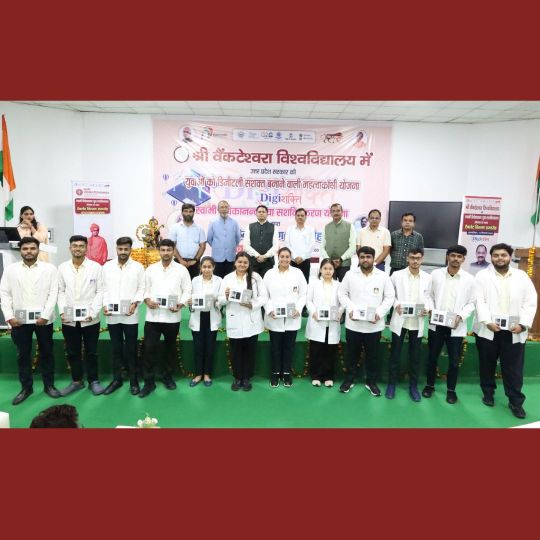







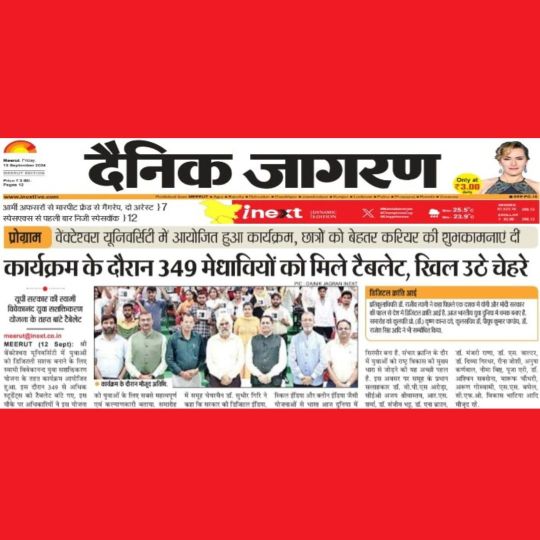








Shri Venkateshwara University/Institute distributed tablets to 349 MBBS & nursing students as part of the UP Govt.’s Swami Vivekananda Youth Empowerment Scheme.
This scheme endeavors to make our youth self-reliant & digitally empowered to face the challenges of the future.
While gifting tablets, the College Management, along with the administrative officials, called the scheme revolutionary & path breaking in making our youth digitally empowered.
They further said the scheme will usher in a digital revolution in the country.
The Venkateshwara Group Founder President Dr Sudhir Giri, CG Mr. Hari Singh Dhillon, Program Head IAS Mr. Rajesh Kumar Tyagi & the Pro Chancellor Dr Rajeev Tyagi inaugurated the event by lighting a lamp to Goddess Saraswati.
The VC Dr. Krishna Kant Dave and the Registrar Dr Piyush Pandey joined them to unveil the tablet distribution ceremony under the Digi Shakti scheme.
The Venkateshwara Group Founder President Dr Sudhir Giri reiterated because of the Digital India-Skill India, & clean India schemes, the country is on track to become a world leader.
In the era of communication revolution, it is a wonderful step to bring the youth into the mainstream of the nation’s development.
In realizing the honorable PM’s dream of Digital India, UP has grabbed the top spot in the country.
The Chief Guest & Teacher MLC Dr Hari Singh Dhillon affirmed technically qualified youth power will not only make India a developed nation, but a world leader.
The DM Mr. Rajesh Kumar Tyagi asserted because of this revolutionary scheme, every youth of the state has become digitally empowered.
The Pro Chancellor Dr Rajeev Tyagi emphasized that in the last one decade the Central Govt. along with the Yogi Government have ushered a digital revolution & elevated the country to be a world leader. The Indian youth is making their presence felt at national & international forums.
Because of the successful implementation of Skill India- Digital India, Healthy India–Clean India, & Ayushman Bharat campaigns, the country is fast progressing to become a developed nation by 2047.
The VC, Dr Krishna Kant Dave, Registrar Dr Piyush Pandey & Dr Rajesh Singh also addressed the tablet distribution ceremony.
Those present included the Chief Advisor Dr VPS Arora, CEO Mr. Ajay Shrivastava, RS Sharma, Dr Sanjeev Bhatt, Dr Ana Brown Dr Manjari Rana, Dr S Walter, Dr Divya Girdhar, Reena Joshi & Anusha Karnwal.
Neema Bisht, Pooja Ary, Dr Ashwini Saxena, Maroof Chaudhary, Arun Goswami, SS Baghel, CFO Vikas Bhatia, Faizan, Anil, Mukesh, & Dhruv Chaudhary were all present.
The Meerut Campus Director, Dr Pratap Singh, was present along with the Media Incharge, Mr. Vishwas Rana, among others. Ms. Rinki Sharma conducted the program very well.
0 notes
Text
All Senior Citizens above 70 years now covered under Rs 5 Lakh health coverage
The Union Cabinet, chaired by the Prime Minister Shri Narendra Modi, has approved the health coverage to all the senior citizens aged 70 years and above irrespective of income under the flagship scheme Ayushman Bharat Pradhan Mantri Jan Arogya Yojana (AB PM-JAY). This aims to benefit approximately 4.5 Crore families with six (6) crore senior citizens with 5 Lakh rupees free health insurance cover…
0 notes
Text
Tamil Nadu Govt is spreading wrong ideas about Pradhan Mandir Sri Yojana… Tamilisai Soundarrajan
Senior BJP leader Tamilisai Soundarrajan has said that the Tamil Nadu government is spreading wrong ideas about the PM Shri scheme and there is an unsafe situation for women police officers in Tamil Nadu. At the Governor’s House in Guindy, Tamil Nadu Governor R. N. Senior BJP leader Tamilisai Soundarrajan met Ravi. Later he met the reporters, Tamil Nadu Chief Minister has gone abroad. There is…
0 notes
Text
தமிழக அரசு சம்மதித்தபடி ‘பிஎம் ஸ்ரீ பள்ளிகள்’ ஒப்பந்தத்தில் கையெழுத்திட வேண்டும்: மத்திய அரசு | TN Govt should signed the PM SHRI Schools Scheme: union govt
சென்னை / புதுடெல்லி: “தமிழக அரசு ஏற்கெனவே ஒப்புக்கொண்டதன் அடிப்படையில், பிஎம் ஸ்ரீ பள்ளிகள் திட்டத்துக்கான புரிந்துணர்வு ஒப்பந்தத்தில் கையெழுத்திட வேண்டும்” என்று முதல்வர் ஸ்டாலினுக்கு மத்திய கல்வி அமைச்சர் தர்மேந்திர பிரதான் எழுதிய பதில் கடிதத்தில் வலியுறுத்தியுள்ளார். இதன்மூலம், தமிழக பள்ளிக் கல்வித் துறையில் கீழ் இயங்கும் அரசு மற்றும் அரசு உதவிபெறும் பள்ளிகளின் வளர்ச்சிப் பணிகள் சார்ந்த…
0 notes
Text

REC signs MoU with JNPA for financing Rs. 45,000 Cr
REC Limited, Maharatna PSU under Ministry of Power and a leading NBFC, signed an MoU with Jawaharlal Nehru Port Authority (JNPA) for financing upto Rs. 45,000 Cr for various upcoming projects of JNPA, which includes development of Vadhavan Port.
Shri Rahul Dwivedi, IAS, Executive Director, REC signed the MoU with Shri Unmesh Sharad Wagh, Chairman, JNPA.
MoU was signed in the presence of Shri Sarbananda Sonowal, Hon’ble Union Minister for Ports, Shipping and Waterways.
Shri Sanjay Sethi, IAS, Additional Chief Secretary (Transport and Ports), Government of Maharashtra and other senior officials from REC & JNPA were also present.
This MoU is to establish a framework for cooperation between JNPA and REC whereby JNPA implements projects in the infrastructure sector of its expertise and REC shall provide the required funds.
JNPA is an undertaking of Government of India, and is a premier container handling Port, accounting for around 50% of the total containerized cargo volume, across the major ports of India.
ABOUT REC LIMITED
REC is a 'Maharatna' company under the administrative control of the Ministry of Power, Government of India, and is registered with RBI as Non-Banking Finance Company (NBFC), Public Financial Institution (PFI) and Infrastructure Financing Company (IFC). REC is financing the entire Power-Infrastructure sector comprising Generation, Transmission, Distribution, Renewable Energy and new technologies like Electric Vehicles, Battery Storage, Pump Storage projects, Green Hydrogen, Green Ammonia projects etc. More recently REC Limited has also diversified into the Non-Power Infrastructure sector comprising Roads & Expressways, Metro Rail, Airports, IT Communication, Social and Commercial Infrastructure (Educational Institution, Hospitals), Ports and Electro-Mechanical (E&M) works in respect of various other sectors like Steel, Refinery, etc.
REC Limited provides loans of various maturities to State, Central and Private Companies for creation of infrastructure assets in the country. REC Limited continues to play a key strategic role in the flagship schemes of the Government for the power sector and has been nodal agency for Pradhan Mantri Sahaj Bijli Har Ghar Yojana (SAUBHAGAYA), Deen Dayal Upadhaya Gram Jyoti Yojana (DDUGJY), National Electricity Fund (NEF) Scheme which resulted in strengthening of last mile distribution system, 100% village electrification and household electrification in the country. REC has also been made the nodal agency for certain States and Union Territories for the Revamped Distribution Sector Scheme (RDSS). REC has also been given the responsibility of PM Surya Ghar Muft Bijli Yojna from Central Government. The loan book of REC stands at ₹ 5.30 lakh crore and Net Worth at Rs. ₹ 72,351 crore as on 30th June, 2024.
0 notes
Text
In the changing education landscape of India, the PM SHRI School Scheme showers bright light and act as a symbol of progress and innovation. Prime Minister Narendra Modi, led an amazing initiative. The goal of this initiative is to develop and innovate approximately 14,500 schools across the country.
0 notes
Text
ICATT Air Ambulance Services is honored to collaborate with the government of Madhya Pradesh in providing lifesaving air transport through the PM Sri Air Ambulance Seva. Launched on May 29, 2024, by the honourable Chief Minister of Madhya Pradesh, Shri Mohan Yadav Sahib, this pioneering initiative ensures that Ayushman Card Holders receive free air ambulance services, offering rapid and high-quality medical care across the state. Non-Ayushman Card Holders can also avail themselves of this vital service, ensuring that no resident is left without access to emergency medical transportation.
Read the full blog here: Free Government Air Transport Scheme
#air ambulance services#free air ambulance#icatt#air ambulance india#emergency medical transfer#air medical service#commercial air stretcher
0 notes
Text
India’s Fight Against Poverty
The Indian government runs schemes for poor people.
The Indian government runs a number of programs to help economically disadvantaged people raise their standard of living. These programs aim to provide financial assistance, create job opportunities, and ensure access to basic amenities including housing, healthcare, and education. Here are some of the major projects aimed towards the poor in India:
Paras Parivaar Charitable Trust Contribution For Poor People
From the bottom of our hearts, we extend a warm welcome to you into the Paras Parivaar Charitable Trust family. In our Sanatan Dharm, this Parivaar was founded and is now being maintained by our Mahant Shri Paras Bhai Ji of Sanatan Dharm to contribute to the welfare of the underprivileged and needy people. Because he consistently states, “happiness of maa is behind their smile.” This idea of Mahant Shri Paras Bhai Ji has become the focus of our family’s daily activities.
The Paras Parivaar Charitable Trust works 365 days a year to lug our Paras Guru’s vision forward. We have helped more than 10 lakh Needy, and thanks to Maa and our Mahant Shri Paras Bhai Ji of Sanatan Dharm, this number is steadily rising. And it is the grandeur of Sanatan Dharm that we strive to assist those who cannot afford to pay for their education or who are food insecure.
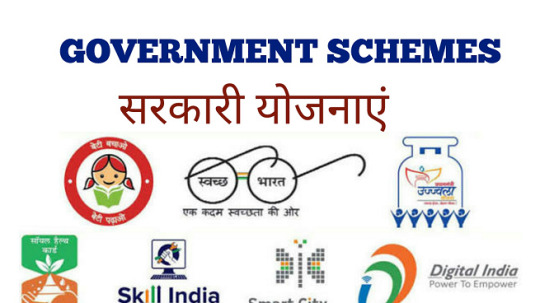
Because we usually hear the quote “Unity is Strength” in everyday life, the Paras Parivaar Charitable Trust would like for you to join our family. We are certain that if we all work together as a single family, we will be stronger and more committed to helping more people in need. Serving an increasing number of individuals in need will enable us to carve out a large place in the heart of our Maa. So, join the Paras Parivaar now for the chance of a lifetime to make the poor and needy smile widely.
Working hard to boost the lives of the Poor And Needy People would also help us reduce the rate of Poverty and increase the rate of education in our nation. In addition to providing aid to those in need, our Mahant Shri Paras Bhai Ji wants to educate them so that they may become self-sufficient and contribute to the cause. join our Paras Parivaar Charitable Trust and aid those in need and destitute with what they need for food, shelter, and education.
Indian Government’s Schemes for Poor People
1. Pradhan Mantri Awas Yojana (PMAY): PMAY, which was introduced in 2015, aims to provide affordable housing for everybody by 2022. Under this scheme, the government funds the construction of pucca houses with basic amenities such as a toilet, LPG connection, power, and drinking water.
2. Mahatma Gandhi National Rural Employment Guarantee Act (MGNREGA):
MGNREGA ensures 100 days of paid employment per year for rural households. It offers unskilled manual labor, ensuring livelihood security in rural areas.
3. National Social Assistance Programme (NSAP): NSAP is a welfare program that assists the elderly, widows, disabled people, and low-income children. It includes the Indira Gandhi National Old Age Pension Scheme, the Indira Gandhi National Widows Pension Scheme, and the Indira Gandhi National Disability Pension Scheme.
4. Pradhan Mantri Jan Dhan Yojana (PMJDY): PMJDY is a statewide financial inclusion strategy that assures access to financial services such as bank accounts, remittances, loans, insurance, and pensions. It provides a basic savings bank account with overdraft protection and a RuPay debit card.
5. Pradhan Mantri Ujjwala Yojana (PMUY): PMUY aims to provide LPG connections to women from BPL homes. It reduces indoor air pollution and empowers women by removing the difficult process of gathering firewood.
6. Pradhan Mantri Matru Vandana Yojana (PMMVY): PMKVY is a maternity benefit system that reimburses pregnant and nursing mothers for salary loss. The program provides a financial incentive of ₹5,000 in three installments after meeting specific requirements.
7. Pradhan Mantri Kisan Samman Nidhi (PM-KISAN): PM-KISAN provides a yearly income support of ₹6,000 to landholding farmer families in three equal installments to cover agricultural and household needs.
8. Pradhan Mantri Shram Yogi Maan-dhan (PM-SYM): PM-SYM is a voluntary, contributory pension scheme for unorganized workers. At 60, beneficiaries receive a monthly pension of ₹3,000.
These initiatives, along with others like the National Rural Livelihood Mission (NRLM), Pradhan Mantri Suraksha Bima Yojana (PMSBY), and Pradhan Mantri Jeevan Jyoti Bima Yojana (PMJJBY), aim to provide a social safety net for the impoverished and vulnerable segments of society.
While these initiatives have made significant progress, challenges remain in terms of awareness, accessibility, and successful implementation. The government continues to monitor and enhance these programs.
#parasparivaar#daily devotional#motivating quotes#poverty#poorpeople#educationhelp#govtscheme#charitabletrust#ngo
0 notes
Text
[ad_1] Paromita Das GG News Bureau New Delhi, 28th October. The Government of Bharat’s PM SHRI (PM Schools for Rising India) Scheme, launched on September 7, 2022, is a transformative initiative designed to establish a model education system accessible to financially constrained students. This scheme aligns with the National Education Policy (NEP) 2020, envisioning quality education that equips students with essential 21st-century skills. With a focus on inclusivity and skill-based learning, PM SHRI aims to prepare students to be engaged, productive citizens, with more than 20 lakh students expected to benefit directly from this program. The ambitious scheme is poised to impact over 14,500 schools across Bharat, evolving them into institutions that integrate the latest technological advancements and innovative learning strategies. The Vision Behind PM SHRI: Inclusive and Holistic Education The PM SHRI Scheme is anchored in the vision of providing equitable education to all, regardless of financial status. As per NEP 2020, there is a strong emphasis on nurturing an inclusive society, with education as the foundation. The PM SHRI Scheme aims to provide an educational ecosystem that goes beyond academics, promoting critical thinking, creativity, and socio-emotional learning. By transforming schools into well-equipped centers of modern learning, the scheme seeks to overcome financial barriers and help students from diverse backgrounds thrive. Key Objectives of the PM SHRI Scheme 21st-Century Skill Development: Focus on skills essential for the modern workforce, including digital literacy, problem-solving, and adaptability. Quality Education: Ensures a standardized quality of education with enriched resources and infrastructure. Inclusive Education: Aims to make education accessible to underprivileged students, breaking financial constraints. Holistic Growth: Encourages the development of a well-rounded personality through co-curricular and extracurricular activities. Equipping for Citizenship: Prepares students to contribute positively to society by instilling a sense of responsibility and engagement. Infrastructure and Technological Advancements under PM SHRI Under the PM SHRI Scheme, the Government of Bharat plans to establish modern infrastructure in PM SHRI schools, focusing on creating an advanced learning environment. These schools will include technology-enhanced classrooms, laboratories for hands-on learning, and well-equipped libraries. With an emphasis on digital learning, these institutions are set to bridge the rural-urban divide in educational resources. Features of PM SHRI Schools Smart Classrooms: Implementation of technology-driven classrooms to facilitate interactive and engaging learning. Science and Technology Labs: Well-equipped labs to encourage students’ curiosity and practical application of knowledge. Sports and Extracurricular Facilities: Facilities for sports and other activities to promote physical well-being and personal growth. Libraries and Digital Resources: Libraries with digital resources and books accessible for all students. This approach aims to nurture well-rounded individuals who are equipped with the critical skills required for success in the modern world. Selection Process for Schools under PM SHRI The selection of schools to be transformed under the PM SHRI Scheme involves a rigorous, multi-stage process to ensure only the most deserving and capable institutions receive the benefits. Schools undergo a three-stage process that includes screening, meeting specific infrastructure and enrollment criteria, and scoring based on performance and facilities. Stage 1: Preliminary Requirements Schools must be managed by central or state governments or local bodies and register as elementary schools for grades 1 to 8. Schools should have essential amenities like separate toilets for boys and girls, potable drinking water, handwashing facilities, and a good condition school building. Stage 2: Advanced Infrastructure Criteria
Schools must have a barrier-free access ramp and must prioritize safety. Enrollment levels should surpass state averages. Libraries, sports equipment, and functional electricity supply are mandated for eligibility. Stage 3: Performance Evaluation Schools in urban areas must score a minimum of 70%, while rural schools need a minimum of 60% to qualify. The final selection includes verification of claims made by schools through physical inspections by State and UT authorities, followed by approval from the Ministry. Impact on Students: Direct and Indirect Benefits The PM SHRI Scheme is designed to benefit over 20 lakh students directly by providing them access to quality education and a conducive learning environment. Indirectly, it will benefit the community by preparing students for the workforce with an enhanced skill set and broad knowledge base, fostering employability and socio-economic upliftment. Furthermore, the scheme will encourage local employment by engaging staff and faculty trained in the latest educational techniques. Educational Impact Skill-Based Learning: Introduction of skills-oriented learning will prepare students for real-world challenges, particularly in STEM fields. Increased Enrollments: Enhanced school facilities and education quality are expected to increase enrollment, especially among financially constrained families. Socio-Emotional Development: The holistic approach of the PM SHRI Scheme includes mental well-being and socio-emotional skills training to support students’ all-round development. Challenges and Considerations for the PM SHRI Scheme While the PM SHRI Scheme is a visionary initiative, its implementation faces several challenges that need to be addressed to ensure lasting impact: Funding and Resource Allocation: Efficient allocation of funds and resources will be crucial to achieving the desired outcomes in all 14,500 schools. Training and Teacher Readiness: Teachers will require training in technology and modern teaching methods to fully leverage the infrastructure provided. Maintenance of Facilities: Ensuring that the new facilities are maintained over time will require additional operational support. Urban-Rural Disparity: Implementing these standards equally across rural and urban schools will require careful planning and resource distribution. Conclusion: PM SHRI Scheme as a Game-Changer in Bharatiya Education The PM SHRI Scheme has the potential to be a transformative initiative in Bharat’s educational landscape. By focusing on creating quality, model institutions that bridge the urban-rural divide, the government aims to make education equitable and empowering for financially constrained students. If implemented effectively, this scheme could lead to a generation of skilled, confident, and responsible individuals contributing to a vibrant and pluralistic society, as envisioned in the NEP 2020. This initiative stands as a commendable effort toward educational reform in Bharat, with benefits that will extend far beyond the classroom. A Bold Step Toward Equitable Education The PM SHRI Scheme marks a significant shift towards inclusive education in Bharat, reflecting a commitment to addressing economic and social barriers. By emphasizing digital skills, holistic growth, and citizenship education, PM SHRI schools could set a precedent for other educational reforms across the country. However, consistent investment in teacher training and infrastructure upkeep will be essential for the scheme’s success. If these aspects are addressed thoughtfully, PM SHRI could indeed revolutionize the educational landscape, transforming Bharat into a nation of well-prepared, adaptable, and socially responsible citizens. The post A New Dawn in Learning: PM SHRI Scheme Revolutionizes Education for All! appeared first on Global Governance News- Asia's First Bilingual News portal for Global News and Updates. [ad_2] Source link
0 notes
Text
[ad_1] Paromita Das GG News Bureau New Delhi, 28th October. The Government of Bharat’s PM SHRI (PM Schools for Rising India) Scheme, launched on September 7, 2022, is a transformative initiative designed to establish a model education system accessible to financially constrained students. This scheme aligns with the National Education Policy (NEP) 2020, envisioning quality education that equips students with essential 21st-century skills. With a focus on inclusivity and skill-based learning, PM SHRI aims to prepare students to be engaged, productive citizens, with more than 20 lakh students expected to benefit directly from this program. The ambitious scheme is poised to impact over 14,500 schools across Bharat, evolving them into institutions that integrate the latest technological advancements and innovative learning strategies. The Vision Behind PM SHRI: Inclusive and Holistic Education The PM SHRI Scheme is anchored in the vision of providing equitable education to all, regardless of financial status. As per NEP 2020, there is a strong emphasis on nurturing an inclusive society, with education as the foundation. The PM SHRI Scheme aims to provide an educational ecosystem that goes beyond academics, promoting critical thinking, creativity, and socio-emotional learning. By transforming schools into well-equipped centers of modern learning, the scheme seeks to overcome financial barriers and help students from diverse backgrounds thrive. Key Objectives of the PM SHRI Scheme 21st-Century Skill Development: Focus on skills essential for the modern workforce, including digital literacy, problem-solving, and adaptability. Quality Education: Ensures a standardized quality of education with enriched resources and infrastructure. Inclusive Education: Aims to make education accessible to underprivileged students, breaking financial constraints. Holistic Growth: Encourages the development of a well-rounded personality through co-curricular and extracurricular activities. Equipping for Citizenship: Prepares students to contribute positively to society by instilling a sense of responsibility and engagement. Infrastructure and Technological Advancements under PM SHRI Under the PM SHRI Scheme, the Government of Bharat plans to establish modern infrastructure in PM SHRI schools, focusing on creating an advanced learning environment. These schools will include technology-enhanced classrooms, laboratories for hands-on learning, and well-equipped libraries. With an emphasis on digital learning, these institutions are set to bridge the rural-urban divide in educational resources. Features of PM SHRI Schools Smart Classrooms: Implementation of technology-driven classrooms to facilitate interactive and engaging learning. Science and Technology Labs: Well-equipped labs to encourage students’ curiosity and practical application of knowledge. Sports and Extracurricular Facilities: Facilities for sports and other activities to promote physical well-being and personal growth. Libraries and Digital Resources: Libraries with digital resources and books accessible for all students. This approach aims to nurture well-rounded individuals who are equipped with the critical skills required for success in the modern world. Selection Process for Schools under PM SHRI The selection of schools to be transformed under the PM SHRI Scheme involves a rigorous, multi-stage process to ensure only the most deserving and capable institutions receive the benefits. Schools undergo a three-stage process that includes screening, meeting specific infrastructure and enrollment criteria, and scoring based on performance and facilities. Stage 1: Preliminary Requirements Schools must be managed by central or state governments or local bodies and register as elementary schools for grades 1 to 8. Schools should have essential amenities like separate toilets for boys and girls, potable drinking water, handwashing facilities, and a good condition school building. Stage 2: Advanced Infrastructure Criteria
Schools must have a barrier-free access ramp and must prioritize safety. Enrollment levels should surpass state averages. Libraries, sports equipment, and functional electricity supply are mandated for eligibility. Stage 3: Performance Evaluation Schools in urban areas must score a minimum of 70%, while rural schools need a minimum of 60% to qualify. The final selection includes verification of claims made by schools through physical inspections by State and UT authorities, followed by approval from the Ministry. Impact on Students: Direct and Indirect Benefits The PM SHRI Scheme is designed to benefit over 20 lakh students directly by providing them access to quality education and a conducive learning environment. Indirectly, it will benefit the community by preparing students for the workforce with an enhanced skill set and broad knowledge base, fostering employability and socio-economic upliftment. Furthermore, the scheme will encourage local employment by engaging staff and faculty trained in the latest educational techniques. Educational Impact Skill-Based Learning: Introduction of skills-oriented learning will prepare students for real-world challenges, particularly in STEM fields. Increased Enrollments: Enhanced school facilities and education quality are expected to increase enrollment, especially among financially constrained families. Socio-Emotional Development: The holistic approach of the PM SHRI Scheme includes mental well-being and socio-emotional skills training to support students’ all-round development. Challenges and Considerations for the PM SHRI Scheme While the PM SHRI Scheme is a visionary initiative, its implementation faces several challenges that need to be addressed to ensure lasting impact: Funding and Resource Allocation: Efficient allocation of funds and resources will be crucial to achieving the desired outcomes in all 14,500 schools. Training and Teacher Readiness: Teachers will require training in technology and modern teaching methods to fully leverage the infrastructure provided. Maintenance of Facilities: Ensuring that the new facilities are maintained over time will require additional operational support. Urban-Rural Disparity: Implementing these standards equally across rural and urban schools will require careful planning and resource distribution. Conclusion: PM SHRI Scheme as a Game-Changer in Bharatiya Education The PM SHRI Scheme has the potential to be a transformative initiative in Bharat’s educational landscape. By focusing on creating quality, model institutions that bridge the urban-rural divide, the government aims to make education equitable and empowering for financially constrained students. If implemented effectively, this scheme could lead to a generation of skilled, confident, and responsible individuals contributing to a vibrant and pluralistic society, as envisioned in the NEP 2020. This initiative stands as a commendable effort toward educational reform in Bharat, with benefits that will extend far beyond the classroom. A Bold Step Toward Equitable Education The PM SHRI Scheme marks a significant shift towards inclusive education in Bharat, reflecting a commitment to addressing economic and social barriers. By emphasizing digital skills, holistic growth, and citizenship education, PM SHRI schools could set a precedent for other educational reforms across the country. However, consistent investment in teacher training and infrastructure upkeep will be essential for the scheme’s success. If these aspects are addressed thoughtfully, PM SHRI could indeed revolutionize the educational landscape, transforming Bharat into a nation of well-prepared, adaptable, and socially responsible citizens. The post A New Dawn in Learning: PM SHRI Scheme Revolutionizes Education for All! appeared first on Global Governance News- Asia's First Bilingual News portal for Global News and Updates. [ad_2] Source link
0 notes
Text

The Union Budget 2024-25, presented by Finance Minister Nirmala Sitharaman, has allocated a significant portion of the budget to the education sector, emphasizing the importance of education, employment, and skilling. As parents and students at Ecole Globale Schools, it is essential to understand how these allocations and initiatives impact education and the future prospects for students. This article provides a detailed analysis of the education budget, its key components, and its implications.
Key Allocations in the Education Budget
Financial Support for Higher Education
One of the main features of the Union Budget 2024-25 is the provision of financial support for higher education. The government has allocated Rs 1.25 lakh crore to the education sector, with specific initiatives to support students financially:
Education Loans: The budget provides loans up to Rs 10 lakh for students pursuing higher education in domestic institutions. This initiative aims to make higher education more accessible to a broader range of students, easing the financial burden on families.
E-Vouchers: An innovative approach introduced in the budget is the distribution of e-vouchers to 100,000 students annually. These vouchers come with a three percent interest subvention, further reducing the cost of education loans.
Job-Ready Education and Internships
The budget places a strong emphasis on preparing students for the job market. Several key initiatives are aimed at enhancing the employability of young people:
New Skilling Scheme: A centrally-sponsored skilling scheme has been launched in collaboration with state governments and industry partners. This scheme targets skilling two million young people over the next five years, ensuring they have the necessary skills to meet industry demands.
Internships: To provide practical experience, the government will facilitate internships for over 100 million young people aged 21-24. These internships come with a monthly stipend of Rs 5,000 from the government and Rs 6,000 from companies, along with an additional Rs 6,000 grant for incidental expenses.
Upgrading Industrial Training Institutes (ITIs)
The budget also focuses on upgrading the infrastructure and curriculum of Industrial Training Institutes (ITIs):
ITIs Upgradation: A total of 1,000 ITIs will be upgraded to ensure they provide industry-relevant skills. These institutes will adopt a hub-and-spoke model, focusing on the specific skill needs of various industrial sectors.
Shifts in Funding Priorities
The budget reflects significant shifts in funding priorities, with notable changes in allocations for higher education and school education:
Reduction in UGC Funding: The University Grants Commission (UGC) has seen a significant reduction in funding, with its budget cut by 61 percent from Rs 6,409 crore to Rs 2,500 crore. This reduction may impact higher education institutions that rely on UGC grants.
Increased Grants for Central Universities: On the other hand, grants for central universities have been increased by over Rs 4,000 crore, with Rs 15,928 crore allocated for the financial year 2024-25. This increase is expected to improve the infrastructure and capabilities of central universities.
Emphasis on School Education
The budget places a strong emphasis on improving school education, with a focus on developing model schools and improving infrastructure:
Model Schools: The government aims to develop 14,500 model schools under the PM School for Rising India (PM SHRI) program. These schools are intended to set high standards in education and infrastructure, providing quality education to students.
Infrastructure Improvements: Several key improvements in school infrastructure have been highlighted:
Girls' Toilets: The percentage of schools with girls' toilets has increased from 88.1% in 2012-13 to 97% in 2022-23.
Internet Coverage: Internet coverage in schools has grown significantly, from 6.2% to 49.7% over the past ten years.
Challenges and Concerns
While the budget introduces several promising initiatives, it also leaves certain areas unaddressed, which may pose challenges to achieving comprehensive educational improvements:
Secondary Level Dropout Rates: The budget does not sufficiently address the high dropout rates at the secondary level, which stood at 20.6% for class 10 in 2023. Addressing this issue is critical to ensuring that more students complete their education.
Academic Performance: The National Achievement Survey 2021 highlights a decline in students' performance, indicating a need for reforms in teaching methods and curriculum design. Improving academic performance at all levels of education remains a significant challenge.
Conclusion
The Union Budget 2024-25 presents a comprehensive approach to improving the education sector, with substantial allocations aimed at enhancing accessibility, skilling, and infrastructure. For parents and students at Ecole Globale Schools, these initiatives promise to provide better educational opportunities and support. However, the budget also underscores the need for ongoing efforts to address existing challenges, particularly in higher education funding and secondary level retention. By focusing on these areas, the government can ensure a more robust and inclusive education system for all.
The Union Budget and Education Budget have laid a strong foundation for the future of education in India. As we move forward, it is essential to keep an eye on how these initiatives are implemented and their impact on the education sector. With continued focus and effort, we can look forward to a brighter future for our students and the nation as a whole. For more info...https://www.ecoleglobale.com/blog/union-budget-means-for-education-budget/
0 notes
Text
Shri Venkateshwara University hosted an on-campus placement drive wherein 27 students got jobs.
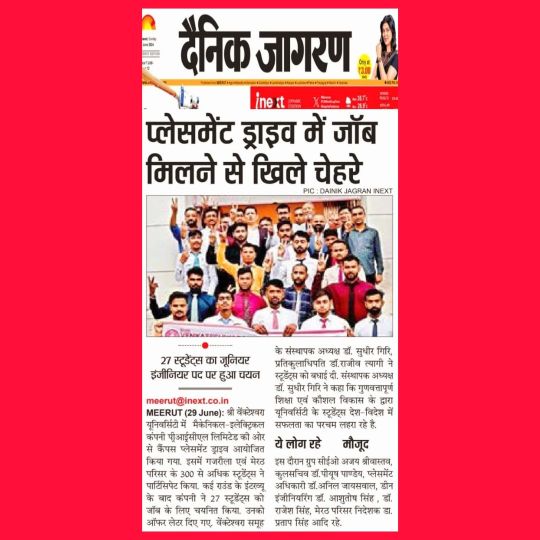
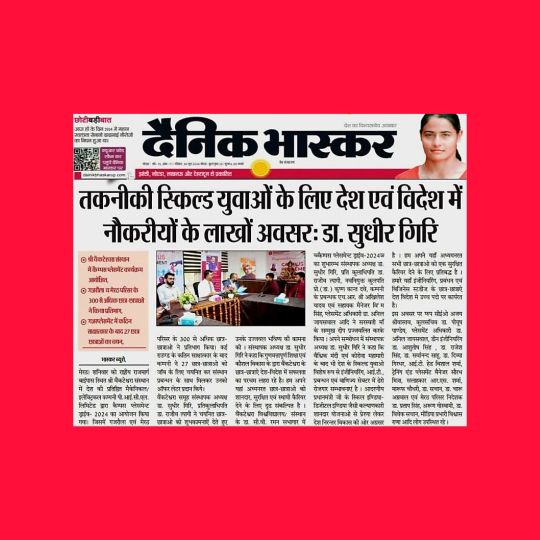
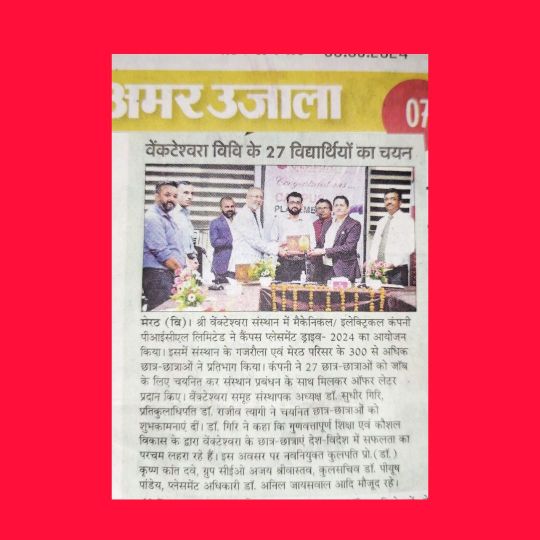
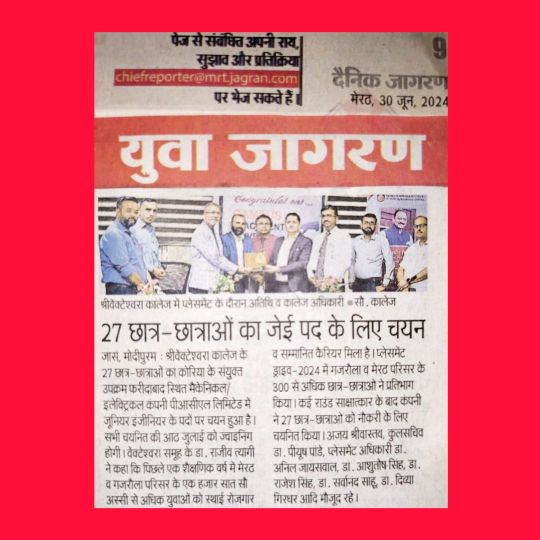
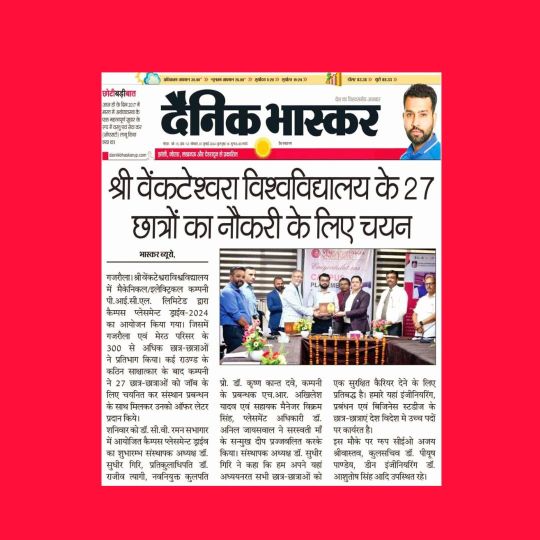


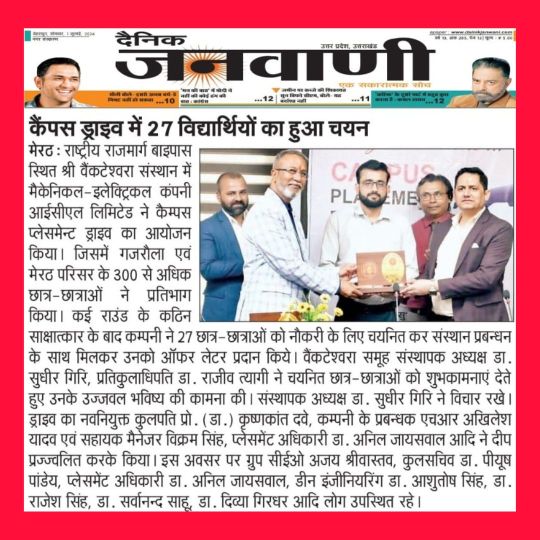
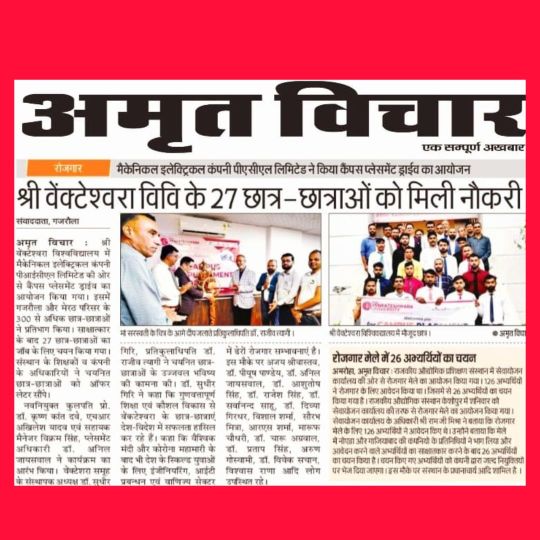
Shri Venkateshwara University/VGI Meerut conducted an on campus placement drive wherein reputed Korean company PICL shortlisted 27 students.
Over 300 diploma engineering students from Gajraula & Meerut campus took part & after several rounds of selection process, the company selected 27 candidates.
The company officials, along with the College management, gave them offer letters.
These students will join as Junior Engineers from the coming July 8th. They were elated after getting jobs in these crunch times.
Till date, we have placed over 1780 students in one academic session.
The Venkateshwara Group Founder President, Dr Sudhir Giri, along with the Pro Chancellor, Dr Rajeev Tyagi, congratulated the selected candidates and wished them a bright future.
The Venkateshwara Group Founder President Dr Sudhir Giri, Pro Chancellor Dr Rajeev Tyagi & the newly appointed VC Dr Krishna Kant Dave inaugurated the event by lighting a lamp to Goddess Sarasvati.
The Company HR Manager Mr. Akhilesh Yadav, Asst. Manager Mr. Vikram Singh & the Placement Officer Mr. Anil Jaiswal joined them to unveil the PICL Campus Placement drive.
The Venkateshwara Group Founder President Dr Sudhir Giri reiterated through quality education & skill development the Venkateshwara students are writing their success stories all over the world.
We are committed to offer excellent, stable & secure career to our students.
Even during recession & the Corona pandemic there are plenty of job opportunities for skilled professionals in engineering, IT, management & commerce domains.
Taking inspiration from the honorable PM’s Skill India Digital India schemes, the country is fast progressing on the path of development.
Engineering has emerged as the 2nd largest employment generator, as there are lakhs of job opportunities for the technically skilled graduates in India & abroad. Our students of engineering, management & business studies are working in top positions all over the world.
The Pro Chancellor Dr Rajeev Tyagi announced through quality education and best industrial exposure, we have placed over 1780 students in one academic session alone.
These students from engineering, agriculture, commerce, management, paramedical, nursing & healthcare sectors are enjoying a stable & respectable career.
The VC Dr Krishna Kant Dave affirmed Shri Venkateshwara University’s school of Engineering, school of IT & management will be developed as a Centre of Excellence.
Those present included the Group CEO Mr. Ajay Shrivastava, Registrar Dr Piyush Pandey, Placement Officer Dr Anil Jaiswal, Dean of Engineering Dr Ashutosh Singh, Dr Rajesh Singh, Dr Sarvanand Sahu & Dr Divya Girdhar.
IT Head Mr. Vishal Sharma, T&P Manager Mr. Saurav Mitra, Consultant Mr. R.S. Sharma, Maroof Chaudhary Dr Sachan, Dr Charu Agarwal, Arun Goswami, Dr Vivek Sachan were all present.
The Meerut Campus Director, Dr Pratap Singh, was present along with the Media Incharge, Mr. Vishwas Rana, among others.
The heartiest thanks to team media for excellent news coverage. Special thanks to Dr. Rajeev Tyagi Pro Chancellor Shri Venkateshwara University/Institute Gajraula, Meerut UP.
0 notes